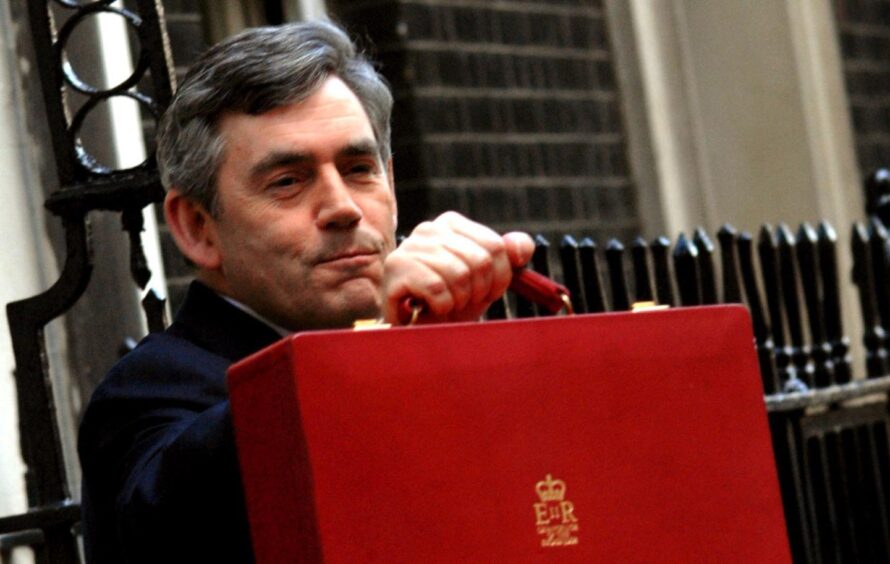
At various times in my more than three decades of scribbling about energy I have witnessed several windfall tax grabs by both Labour and Tory administrations.
As far as I can judge, each of them ultimately backfired on the government of the day, especially Gordon Brown who served as both chancellor of the Exchequer and then PM.
In fact, Brown became legendary in that regard, notably with his ill-judged raid on the pensions industry that inflicted incredible long-term damage.
At the start of the year, in This is Money, Hamish Macrae recounts what Brown did, starting by asking why it is that UK pension funds don’t invest in UK equities.
Back in 1997, they and other UK institutional investors owned nearly half of all UK-quoted shares. Today it’s a mere 4%. And the collapse was precipitated through a cocktail of tax and regulation.
And the tax – a raid on dividends paid to pension funds – was Brown’s idea.
“Until 1997, pension funds got a tax credit. So if they were paid £80 in dividends, they got back £20 as a credit. The rationale was that the company had already paid corporation tax and for pensioners at least there should be some sort of rebate,” recounts Macrae, sometime editor of Euromoney.
“The numbers did not look huge. It raised £5 billion a year and, since pensioners did not realise what was happening, Brown slipped it through in his first Budget that summer without much hassle.
“Cumulatively, though, the impact was huge. Not only did pensioners lose the income, they lost the growth in funds that would have accrued from reinvested dividends.
“The total loss has been put at £250billion over the ensuing 20 years. And of course, now it raises no money because pension funds hold hardly any British shares.”
‘Investment in the North Sea shrank’
Brown also sold off half of Britain’s gold reserve in 1999. Branded the worst deal in UK history by some. The Bank of England said, “Stop!”
But he went through with the sale and clawed in a pathetic £3.1 billion, in the long run perhaps costing the UK around £21 billion, it is said.
Brown also tried bullying the North Sea by trying to siphon billions more from an industry that was only just recovering from the second global oil price crash at the end of the 1990s.
Brown imposed a 10% supplementary charge in 2002 and, in a late 2005 pre-Spring budget announcement, launched a £2 billion assault by doubling said supplementary charge to 20%.
In fairness, he also said there would be a new package of incentives for new companies that want to explore difficult North Sea oil and gas fields.
In so doing he stirred up a veritable hornet’s nest with SNP leader Alex Salmond retorting: “Gordon Brown is killing the goose that lays the golden egg and potentially putting thousands of future jobs at risk.
“He could have sat down and discussed options with the industry but this is a smash and grab to fill the black hole in his coffers.”
Investment in the North Sea shrank.
History repeats itself
George Osborne tried a similar trick after the Tories grabbed power in 2010. The following year the shiny new chancellor of the exchequer tried the same trick.
On April 21 2011 Energy Voice carried the headline: “Osborne North Sea tax raid could cost oil sector £50bn”.
The claim was dismissed by the Cameron administration even though it was made that August by oil and gas professor Alex Kemp of Aberdeen University.
EV stated: “In a report published today, the professor of petroleum economics at Aberdeen University said the number of new developments in the North Sea could be cut by more than 35% in the next three decades as a direct result of Mr Osborne’s shock Budget announcement.”
Throughout most of its 60-year life, this most strategic of industries has been exploited through extra tax grabs by a succession of governments.
Following Keir Starmer’s recent landslide victory, Labour is back to the same old carry-on, though it had at least expressed the intention to raise extra windfall tax several months ago.
The weary, aged, declining North Sea industry has once again reacted.
EV recently reported that the supply chain itself is fighting back.
A group of 42 manufacturers, professional services and engineering companies employing tens of thousands have issued a joint letter to Sarah Jones, industry and decarbonisation minister, condemning the intended Energy Profits Levy hike; its extension to 2030, removal of the investment allowance and a reduction in capital allowances.
How the hell can the UK achieve an orderly energy transition with this sort of nonsense going on?
Recommended for you
